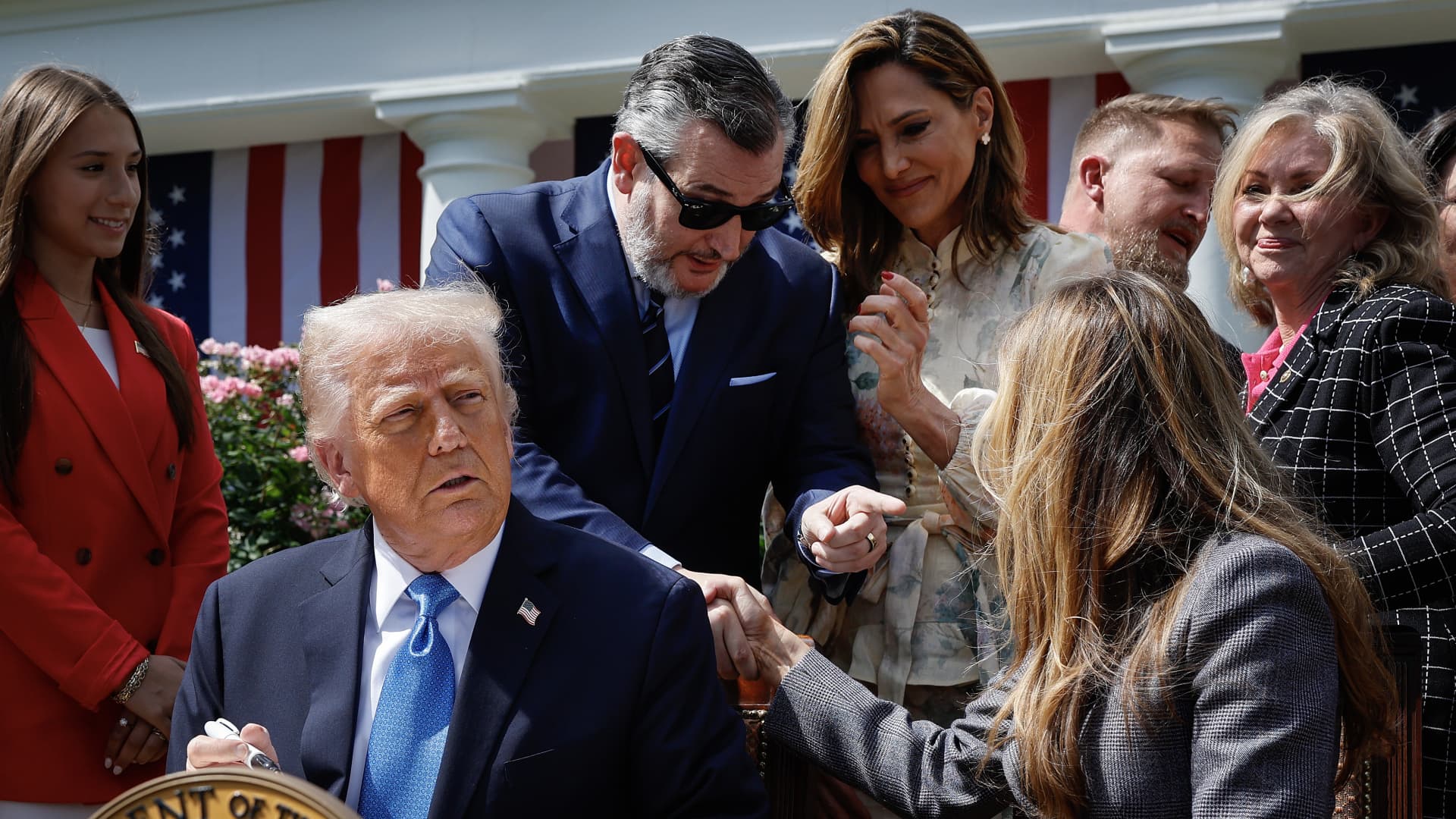Sen. Ted Cruz (R-TX) (C) congratulate U.S. first lady Melania Trump before President Donald Trump signs the TAKE IT DOWN Act during a ceremony with deepfake victims and members of Congress in the Rose Garden of the White House on May 19, 2025 in Washington, DC.
Chip Somodevilla | Getty Images News | Getty Images
President Donald Trump signed legislation Monday that bans the nonconsensual online publication of sexually explicit images and videos that are both authentic and computer-generated.
The Take It Down Act makes publishing such content illegal, subjecting violators to mandatory restitution and criminal penalties such as prison, fines or both. The bill also establishes criminal penalties for people who make threats to publish the intimate visual depictions, some of which are created using artificial intelligence.
The measure requires websites, through enforcement by the Federal Trade Commission, to remove such imagery after they receive requests from victims within 48 hours and to make efforts to take down copies, as well.
“With the rise of AI image generation, countless women have been harassed with deepfakes and other explicit images distributed against their will. This is … wrong, and it’s just so horribly wrong,” Trump said at an afternoon signing ceremony in the White House Rose Garden. “It’s a very abusive situation like, in some cases, people have never seen before. And today we’re making it totally illegal.”
First lady Melania Trump, who championed the legislation, attended the event.
“This legislation is a powerful step forward in our efforts to ensure that every American, especially young people, can feel better protected from their image or identity being abused through nonconsensual, intimate imagery,” she said at the ceremony. “Artificial Intelligence and social media are the digital candy for the next generation — sweet, addictive and engineered to have an impact on the cognitive development of our children, but unlike sugar, these new technologies can be weaponized, shape beliefs and, sadly, affect emotions and even be deadly.”

It is only the sixth bill Trump has signed into law in his second term. By his 100th day in office, he had signed only five bills — fewer than any other president in the first 100 days of an administration since at least Dwight D. Eisenhower in the 1950s, according to an NBC News analysis of data in the Congressional Record.
The Senate approved the measure by unanimous consent and the House overwhelmingly passed it in a 409-2 vote last month. Sens. Ted Cruz, R-Texas, and Amy Klobuchar, D-Minn., sponsored the bill in the Senate, while Rep. Maria Elvira Salazar, R-Fla., introduced its companion in the House along with several other members, including Democrats.
According to the bill’s sponsors, while many states have laws explicitly banning sexual deepfakes, they vary in terms of classification of crime and penalties.
Trump highlighted the bill in early March, joking that it would apply to him. “I’m going to use that bill for myself, because nobody gets treated worse than I do online,” he said.
The first lady also held an event on Capitol Hill that month touting the proposal. “It’s heartbreaking to witness young teens, especially girls, grappling with the overwhelming challenges posed by malicious online content like deepfakes,” she said.
“This toxic environment can be severely damaging,” Melania Trump continued. “We must prioritize their well-being by equipping them with support and tools necessary to navigate this hostile digital landscape. Every young person deserves a safe online space to express themselves free without the looming threat of exploitation or harm.”





